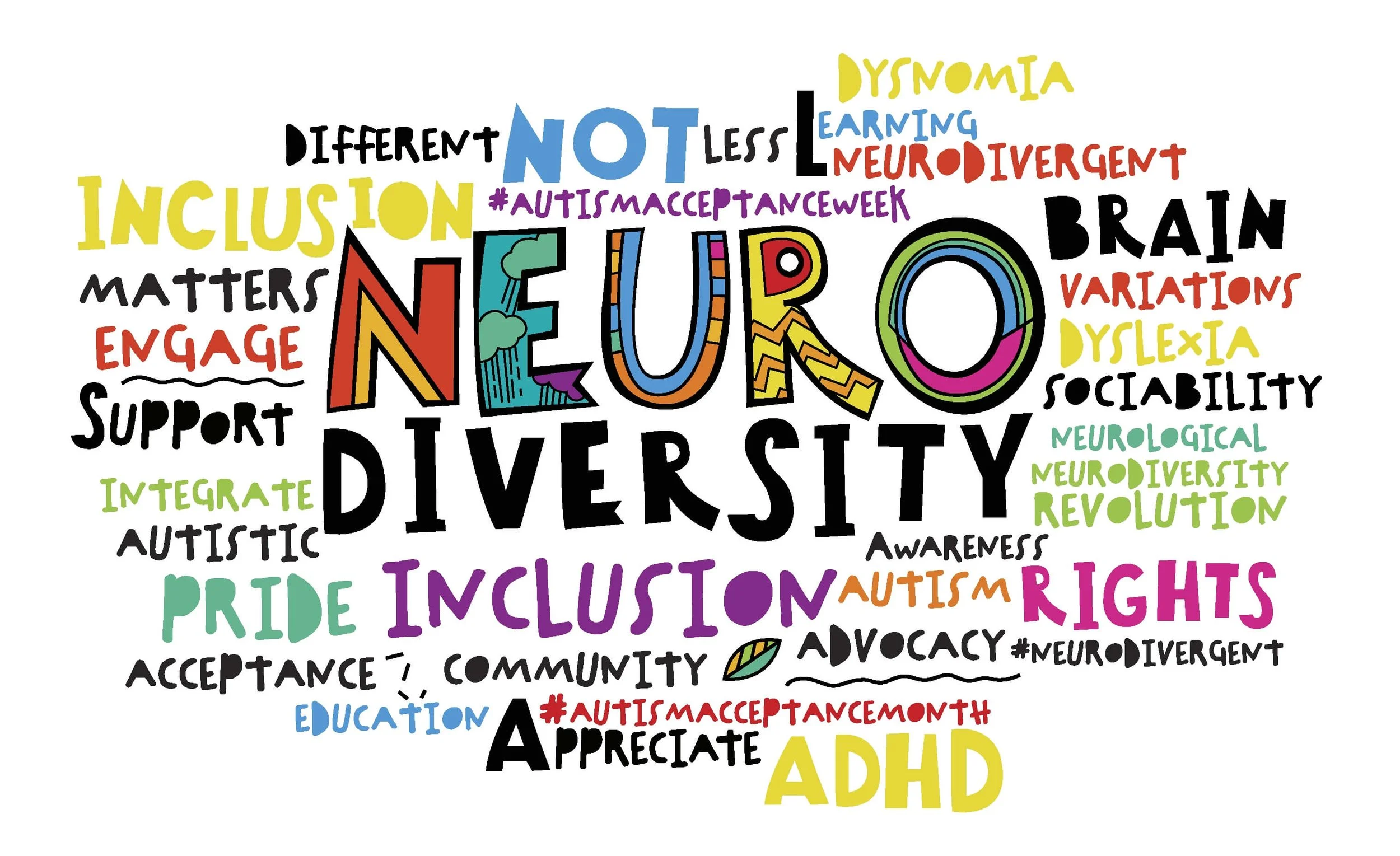How is neurodiversity affecting our children and how this is impacting their daily lives?
Nobody likes labelling their children, yet sometimes knowing what struggles your child is going through may make understanding your child's feelings, actions and emotions much easier, especially as research indicates that 15-20% of children and young people are neurodivergent (1).
What is neurodiversity?
The term neurodiversity is an umbrella term that encompasses the idea that people's brains work in different ways. These differences are natural and it describes the range of neurological differences that exist among people as well as celebrating the value of these differences.
Quite often, the education system will fail these children as the current curriculum demands and constraints do not allow for adjustments to be made for children with these types of symptoms and diagnosis.
Neurodiversity in the Asian community.
On the whole, studies have found that children of Asian heritage are less likely to be identified and diagnosed with neurodiversity than white children (2). For example, in the UK, Asian children are half as likely to be identified with ASD as white British children (3). But the reasons for why there is such a difference are extremely varied. Some argue that cultural differences may explain the low incidence of Asian representation in the neurodiverse community. For example, in China, some parents may view autism symptoms as temporary and believe their child will outgrow it (3).
Others argue that a lack of awareness among both parents and healthcare professionals within South Asian communities may contribute to the disparity (4). Statistics also indicate that individuals from affluent backgrounds are diagnosed at an increased rate compared to those who are from poorer backgrounds (4). In addition, some Asian parents believe having a child with developmental issues is a source of shame. As a result of this cultural stigma, they ignore symptoms of conditions like autism and other neurodiverse conditions that their children may be displaying (4).
Getting a neurodiversity diagnosis?
You can seek an assessment through the NHS in the UK for free by firstly taking your child to see your GP and asking to be referred. You are likely to need to explain why you think you might need an assessment and may be asked a few questions. You may also need to speak to the school SENDCo who will be able to offer signs and symptoms of your child's symptoms within the classroom. They may also complete assessments within school that can support your referral application.
Getting a clear assessment and diagnosis from an Educational psychologist, which can be done privately or through school is essential in supporting not only your child at school, inform school staff in aiding their needs but also giving them strategies to use when they reach adult age and are required to venture the world of work with needs are complex and different from others around them.
How can we support neurodiversity with our children in the home environment?
The first place to start to support your child is in your home. Many neurodiverse children don’t get the foundation of support they need in their homes and they don’t get the resources they need to thrive.
If you have a neurodivergent child or young person, here are some ways that you can help them succeed starting at home:
If they are struggling, remember to validate their problems and emotions as their problem is very real to them. Belittling will only make their worries worse.
Listen to what they have to say and try to not give your opinion.
Give them outlets for any sensory sensitivities they have. You can get your child used to sensory items for your child to use to help them with triggers or reduce stress.
Having a routine set will reduce stress levels for your child. Visual timetables can help.
Encourage your child in their strengths.
Break down tasks into smaller tasks to make them less overwhelming.
Encourage them in self-regulating activities, such as exercise and always try to enforce positive reinforcement.
Remember to be patient with your child as it may take them some time to get used to a new idea or routine.
Hopefully these tips can help your neurodivergent child to be set up for a successful day and limit their anxiety and triggers.
How can we support our child during Social Situations?
Neurodivergent children can often struggle in certain social settings. This means it is important to give them resources they can use in order to comfortably and happily integrate themselves into society.
Social interaction is an important and necessary part of development for kids. It is also often unavoidable. When they are in a social situation, they may experience anxiety or become overstimulated. To help them do well, find ways you can minimize these things.
Here are some ideas to help your child be more comfortable in social situations:
If your child suffers from anxiety in social situations, consider helping them make script cards to help them when they need to speak to other people.
Give them sensory items they can bring with them, such as fidget spinners, to reduce anxiety or increase concentration.
Use rewards and lots of positive reinforcement. Going out of their comfort zone may be hard for them and they will need encouragement to do so.
You can also utilize many of the things you do at home to support your neurodiverse child in social settings.
More information please use the links below:
https://www.gov.uk/government/news/neurodiversity-in-the-youth-justice-system
https://post.parliament.uk/research-briefings/post-pn-0733/
References:
Support for neurodiversity | Equality, Diversity and Inclusion
Ethnic minority children not equally identified with Special Education Needs | University of Oxford
What is neurodiversity? Explaining how some people's brains work differently - The Brain Charity


